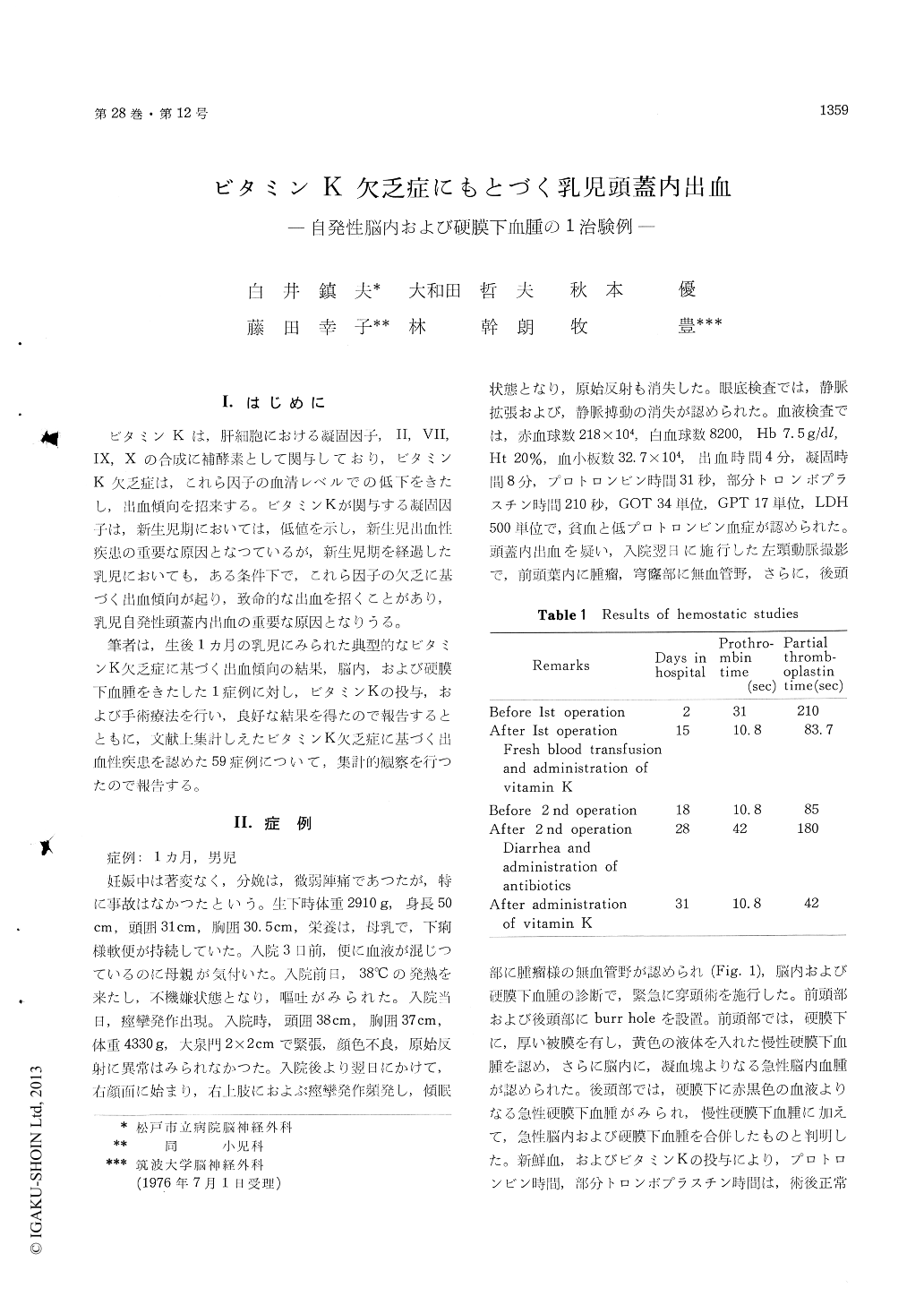Japanese
English
- 有料閲覧
- Abstract 文献概要
- 1ページ目 Look Inside
I.はじめに
ビタミンKは,肝細胞における凝固因子,II,VII, IX,Xの合成に補酵素として関与しており,ビタミンK欠乏症は,これら因子の血清レベルでの低下をきたし,出血傾向を招来する。ビタミンKが関与する凝固因子は,新生児期においては,低値を示し,新生児出血性疾患の重要な原因となっているが,新生児期を経過した乳児においても,ある条件下で,これら因子の欠乏に基づく出血傾向が起り,致命的な出血を招くことがあり,乳児自発性頭蓋内出血の重要な原因となりうる。
筆者は,生後1カ月の乳児にみられた典型的なビタミンK欠乏症に基づく出血傾向の結果,脳内,および硬膜下血腫をきたした1症例に対し,ビタミンKの投与,および手術療法を行い,良好な結果を得たので報告するとともに,文献上集計しえたビタミンK欠乏症に基づく出血性疾患を認めた59症例について,集計的観察を行ったので報告する。
1) A one-month-old male infant with spontaneous intracerebral and subdural hematomas due to vitamin K deficiency was described. He was breast-fed. Loose stools continued and began to contain blood. He had fever, vomiting and convulsion, and became drowsy. The blood studies showed anemia and hypoprothrombinemia. Left carotid angiograms revealed intracerebral and subdural hematomas. He was treated successfully by immediate operation and administration of vitamin K.
2) Vitamin K deficient hemorrhage beyond the immediate newborn period was discussed with refer-ence in the literature.
Three etiologic factors included, decreased vitamin K intake, decreased intestinal absorption of vitamin K and decreased production of vitamin K by colon bacteria. The most important factor of the three seemed to be low vitamin K intake.
Intracranial hemorrhage was recognized in about one third of the cases in the literature. It was emphasized that vitamin K deficiency occurring beyond the immediate newborn period was very important as a cause of intracranial hemorrhage in infancy.

Copyright © 1976, Igaku-Shoin Ltd. All rights reserved.


